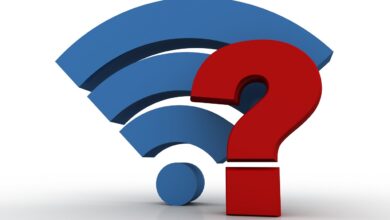
Illegal Downloads Will Cost You
Accommodation manager charged with illegal downloads and accessing inappropriate websites. “But it wasn’t me, it was my guests!”
Think it can’t happen to you? Wrong.
Do you know that you can be prosecuted if users of your wireless network illegally download and access inappropriate websites?
Piracy is the term used for copying, selling, or using software not properly licensed or paid for. Software piracy is illegal, termed ‘stealing’, attracting hefty fines/imprisonment. Downloading music, games, movies and such without permission is illegal in Australia – even for personal use. It’s a breach of copyright. If you haven’t paid for a copyrighted download or asked permission to download, then you are breaking Australian law.
This is more relevant now as in October 2011 Australia, the United States, Canada, Japan, Morocco, New Zealand, Singapore and South Korea signed the Anti-Counterfeiting Trade Agreement, an accord targeting intellectual property piracy. The agreement is an intellectual-property enforcement regime resembling the one already in the United States.
Businesses offering or wanting to offer free/paid Internet access to their customers face real concerns, given they don’t know what their users are downloading or accessing under the business Internet access. While businesses need to offer Internet access to customers to remain competitive in their field, offering the technology that the general public expects from facilities, protection from fines/prosecution must be priority. Gone are the days of trusting the customer is doing the right thing.
Businesses can no longer have an open wireless network that anyone can access or an Internet network accessed by one password handed out to numerous clients as is common practice presently. To protect your business and your reputation, you must be able to manage and identify who is using your Internet network.
The Australian Labour government is planning to rollout copyright reforms making it easier for firms engaged in mass copyright lawsuits to gain the identity of file sharers but will also give Internet service providers and website operators more protection against actions made by the users. You and your business is the user when offering free or paid Internet to customers. A new group, called the Movie Rights Group is taking a leaf out of the playbook of UK and US anti-piracy firms by “suing” Internet users for copyright infringement in Australia.
In October 2011, federal attorney-general Robert McClelland spoke at a conference organised by the pro-copyright lobby detailing these proposed changes. Mr McClelland wants to make it easier for lawyers of copyright holders to obtain the personal details of Internet account holders (your business) whose IP address has been identified as taking part in unauthorised file sharing/downloading/uploading/accessing. Copyright holders, after obtaining the information, can proceed with lawsuits or, more likely, force users to pay a settlement fee, usually in the thousands of dollars. The government may even attempt to bring the system of banning repeat offenders from the Internet.
Person to Person/Bit Torrent programs are often used to download or share movies, music and other copyrighted material illegally. If a customer has installed for example LimeWire onto their computer, the program sets itself up on the computer to automatically start when that computer starts. What it does in the background without most people even knowing, is share the copyrighted material downloaded initially, back out to the Internet. This can happen when customers start their computer on your Internet network. Your business then becomes a copyright offender as per the Anti-Counterfeiting Trade Agreement. If you are investigated or have a civil case taken out against you, it is in your best interest to be able to provide the details of end user(s) that were connected at the infringement time.
Even though the “agreement” has only just been signed in Australia, prosecutions have been happening for years. In December 2009, a UK pub owner was fined for wi-fi illegal downloads. The owner was fined £8,000 when a customer used its public wi-fi hotspot to illegally download copyrighted content. In February 2010 a Queensland resident successfully sued by Nintendo and fined $1.5 million for uploading to the Internet a copy of its Wii game New Super Mario Bros a week before its Australian release in November 2009.
With the advent of new technologies, solutions do not have to be as expensive as you may think thus allowing more businesses having the ability to protect themselves while staying competitive in their field. With the release of the National Broadband Network these copyright lawsuits will grow exponentially.
Don’t become a statistic. Act now!
Peter Trollope
Time Out Internet

AccomNews is not affiliated with any government agency, body or political party. We are an independently owned, family-operated magazine.







